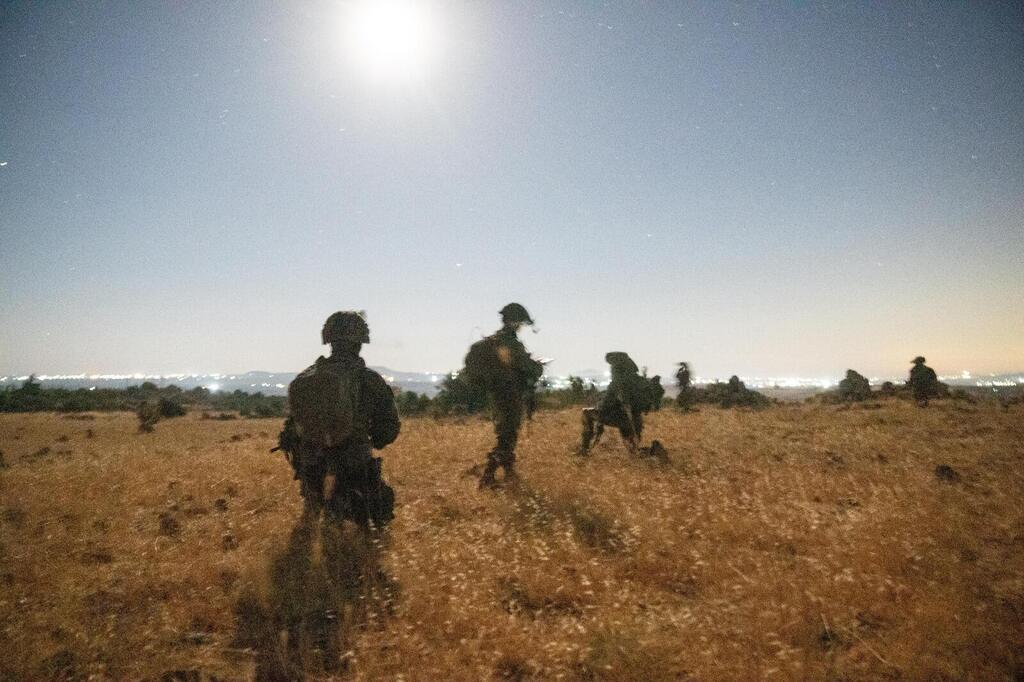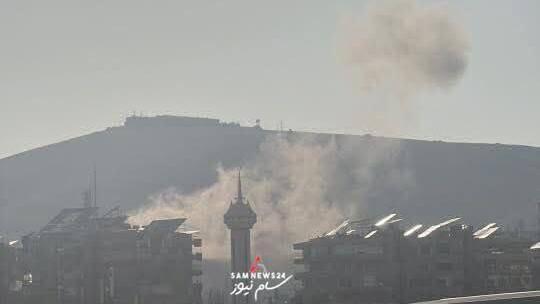According to Israeli media citing “well-informed” Syrian sources, a high-ranking Syrian official confirmed that both sides are nearing an agreement that includes a phased Israeli withdrawal from areas captured in recent military operations, including the summit of Mount Hermon.
4 View gallery


Prime Minister Benjamin Netanyahu, Syrian leader Ahmad al-Sharaa
(Photo: Abdulaziz KETAZ / AFP, Yariv Katz, AP Photo/Matias Delacroix)
The source, who spoke on condition of anonymity, said the proposed agreement would “normalize relations fully between the two countries.” He also suggested that the Golan Heights could become a “peace garden,” a reference to potential joint economic and development initiatives.
The Golan Heights holds major strategic value, offering surveillance over Syria, Lebanon and Israel, as well as access to key water resources. Any agreement would have to address sovereignty, security and resource sharing.
These developments align with statements made by Israeli officials, including National Security Adviser Tzachi Hanegbi. During a closed session of the Knesset Foreign Affairs and Defense Committee, Hanegbi said that direct, ongoing communication now exists with Damascus, surpassing past indirect channels.
The Israeli-Syrian conflict dates back to 1948, the year of Israel’s founding and the first Arab-Israeli war. Several wars followed, especially the conflicts of 1967 and 1973. Israel has occupied about 1,200 square kilometers of the Golan Heights since the Six-Day War in 1967 and later annexed the territory, a move not recognized internationally except by the United States.
Earlier reports in Hebrew media said Syrian officials believe a peace deal could be reached before the end of U.S. President Donald Trump’s term, citing daily, direct contact between the two governments. The Syrian Foreign Ministry declined to comment.
Although Damascus has not publicly confirmed the negotiations, the consistency of leaks and corroborating Israeli reports suggest active discussions are underway that could lead to a formal announcement.
Syrian analysts say the shift reflects changing priorities in Damascus following years of war and weakening Iranian and Russian influence. Syria is seeking reintegration into the region and relief from isolation.
Dr. Kamal Jbeili, a strategic affairs researcher in Damascus, said that Syria’s openness to peace “is not surprising if read in the context of reprioritization,” explaining that “the Syrian leadership realizes that remaining in regional and international isolation is no longer a sustainable option, especially after the decline of external support and the impact of economic sanctions.”
Jbeili added that normalization with Israel “might be employed as a strategic card to improve the internal economic and security situation, provided Syrian sovereignty and the Golan file are preserved within clear understandings.”
Iranian affairs expert Mostafa Al-Nuaimi said that Syria appears to be taking a calculated step back from its previous alignment with Iran. He said, “Syria’s repeated failure to respond to Israeli strikes gives the impression that it is implicitly tolerating the Israeli-Iranian confrontation on its territory, or at the very least, is unable to prevent it.”
He continued, “Syria is currently trying to partially neutralize itself from the Israeli-Iranian conflict in order to preserve its fragile internal stability—this is not necessarily a matter of ‘granting rights,’ but rather an effort to avoid open confrontation.”
While Syria has not granted Israel combat rights, its ongoing silence regarding Israeli airstrikes suggests tacit acceptance. Conversely, Syria has allowed Iran to use its airspace and territory extensively over the past decade, though this too may be changing.
Al-Nuaimi added that Iranian influence in Syria has declined, especially as Arab states resume normalization with the Syrian government.
Political analyst Rola Abdullah said that talk of peace “raises wide division within the Syrian public opinion.” Still, she believes “direct negotiations with Israel may lead to a negotiating achievement, as long as it returns the land and preserves national dignity.”
Abdullah said, “Open dialogue with Israel, whatever its results, reflects a change in the nature of the conflict from being purely military to becoming primarily political,” but cautioned that “the Syrian street will remain cautious of any agreement that is not clear and transparent in its details.”
If realized, the agreement could reduce tensions in the Middle East, shift alliances and boost wider peace efforts, especially in conflict zones such as Yemen and Libya.
Reactions from international powers will be crucial. The United States and Russia, with their diverging interests in the region, are expected to weigh in. At the same time, Arab countries may split in their responses. Some, especially those already aligned with Israel under the Abraham Accords, may welcome the development, while others may resist due to the unresolved Palestinian issue.
This potential deal reflects broader shifts in the region, where political dialogue is gaining ground over military confrontation. If signed, it would mark the first formal peace between Israel and Syria since 1948—a development that could reshape the strategic landscape of the Middle East.



